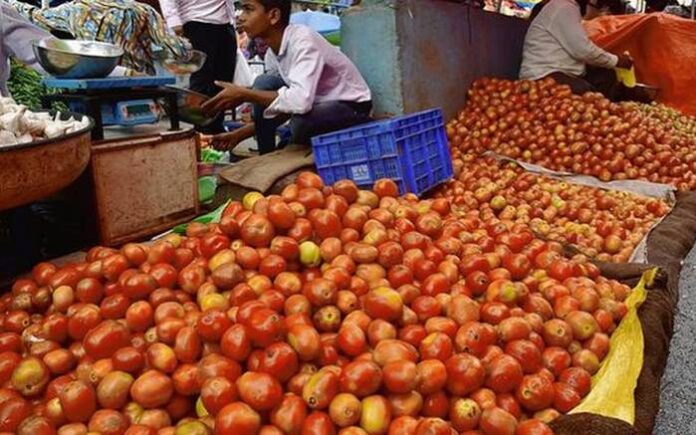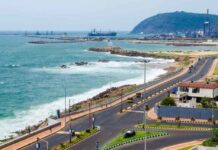Vijayawada, November 24, 2021: The price of tomatoes — sold every winter around ₹ 20 a kilo — has spiraled following rain and floods in parts of Andhra Pradesh, Karnataka and Tamil Nadu. In most southern states, tomatoes are selling for upwards of ₹ 100 a kilo. The worst sufferer of the shortage is Chennai, where the much-needed vegetable is selling for ₹ 140 a kilo, up from ₹ 40 a kilo at the beginning of this month.
Prices of other vegetables like capsicum and onions have also gone up, giving the opposition a fresh issue to attack the government.
In Andhra Pradesh — the largest producer of tomatoes in the country — the vegetable is selling at ₹ 100 a kg and are likely to shoot up further. Large tomato-growing areas have been hit by rain and the diesel price hike is further augmenting the prices.
Normally, tomatoes are cultivated from 58000 hectares in Andhra Pradesh and the state grows around 26.67 lakh metric tonnes. Madanapalle in Chittoor is the biggest tomato market. But this year, the biggest producers — the districts of Chittoor and Anantapur — are among the areas hit worst by floods.
Now the supplies are coming mostly from Solapur in Maharashtra, and Karnataka’s Chikbullapur.
In Chennai, where tomatoes are burning a hole in customers’ pockets, the wholesalers are blaming short supply and hoarding by online platforms. Besides some local produce, the city gets its supplies largely from Andhra Pradesh and Karnataka according to the reports published in ndtv.com.
“The situation that Modi-ji has created for the country — Section 144 has been imposed on tomato and onion in the kitchen… Capsicum is ₹ 100-120 a kilo, even onions are ₹ 50 a kg,” said Congress spokesperson Pawan Khera.
Pointing out that input cost has gone up after the imposition of Goods and Services Tax on diesel and agricultural equipment, he said the government should make an assessment of the government on how much money the common man is left with at the end of the month.
Moreover, free ration will also stop at the end of November, he said, remarking that the government “did not make any preparations for the post-Covid period”.





















